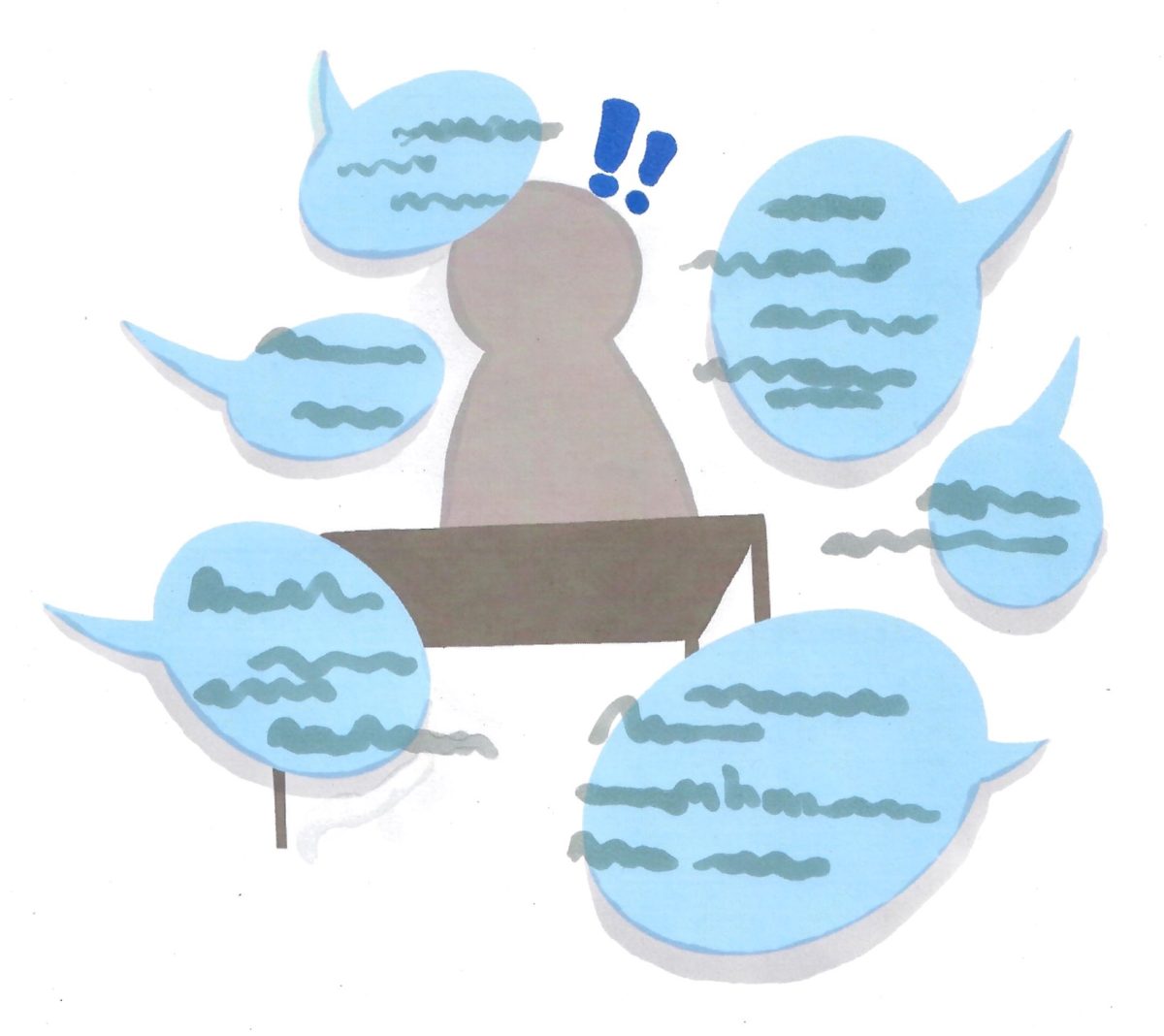In a 2023 survey conducted by The Urban Legend, 43 out of 51 female-identifying students (84%) said they have felt uncomfortable with male-identifying students’ behavior in class at some point during their time at Urban.
Responses from the survey as well as interviews with several female-identifying students reveal discomfort in the co-ed class environment.
“[There’s] mansplaining, [them] thinking you’re dumb, [them] literally re-repeating the rule or directions of a problem when you just asked them about a specific step,” said female-identifying student Selena Corpuz ‘24 (in the 2023 survey).
“I couldn’t even ask questions without feeling judged or ranked,” said female-identifying student Dylan Marchiel ‘24 about a math class.
“Sometimes I just feel scared to share,” said female-identifying student Lily Mitchiner ‘26 about a science class.
“[Male-identifying students] just talk over me, or think that what they are saying is more important than everyone else in the room,” wrote female-identifying student Page Sparks ‘24 (in the 2023 survey).
“I was in a class where I had a fear of judgment: boys listen to each other more,” said female-identifying student Macey Payne ‘24 about a history class.
“The main experience I have is being shunned or discredited during group work when I am the only female-identifying person,” said Mia Schoen ‘25 (in the 2023 survey).
Assistant Head of Student Life Charlotte Worsley has worked with many students to help them feel more comfortable in classes. “What I often do with students is say, ‘Let’s just talk about what’s going on and what’s bothering you.’ We talk about different options,” she said. “Since it’s high school, how do we empower you? When appropriate, how do we help you to develop resilience for managing challenges in the future? We want to prepare people for college and adulthood while also not excusing behavior that needs to be addressed.”
“After [an] issue had been brought to the attention of faculty, the situation improved a bit,” said female-identifying student Ellis Monty ‘24.
“I switched out of a class partially because of personal reasons and partially because of the gender dynamics,” said Lily Halbert-Alexander ‘24. “I felt supported by the administration in switching classes. … The teacher of the class I dropped was [also] so kind to me about switching, which I really appreciated.”
Math Teacher Laura Hawkins also has an approach to help mitigate discomfort. “My policy is no mix-gendered tables that are majority boys,” she said.
Hawkins found that by telling her students about this policy, she has noticed improvements in male-identifying students’ behavior. “Even just naming that I’m doing this intentionally can be helpful, because no guys in the room are trying to ignore or be disrespectful or talk over female and nonbinary people,” she said.
Worsley shares a similar view on naming the discomfort. “If you call Urban students on their behavior, 90% of the time it stops,” she said.
Despite efforts from teachers like Hawkins, some students have not seen improvements in inappropriate behavior.
“There’s only so much [a teacher] can do,” said Monty. “There is some truth to [the saying] ‘boys will be boys,’ because if someone doesn’t care to correct their [own] biases, when you call them out, nothing changes.”
Monty is not alone. “I have had many experiences of teachers believing that a conversation with male students will resolve the problem,” said Marchiel. “While I appreciate the recognition of the situation, there is often little consideration for the harm that has already been done. … The issue is not just the immature guys — it’s the lack of acknowledgement of my emotional and mental state in the class.”
While some teachers have systems in place to prevent discomfort, some students have experienced a lack of support from teachers and the administration.
“A boy in my class would not stop touching my foot with his,” said Mitchiner. “I talked to my teacher and they told me I needed to be nicer to him and cut him a break, [even though] they watched it happen. [The teacher’s response] made me feel uncomfortable for even bringing it up because of how lightly they brushed it off.”
Switching classes is a method that some have used to evade uncomfortable situations. However, in turn, students then miss out on a class of their interest.
“I eventually switched [out of one of my] classes. I had used all my resources and advocated for myself and still nothing changed. What instead was recommended was embracing the uncomfortable classroom environment as a learning experience,” said Marchiel.
“[Sexism in workspaces] is something I’m going to run into in the future, so I appreciated [my teachers] pointing it out, but it didn’t make me stay in the class, and now I’m missing out on a class I really did want to take,” she said.
While some female-identifying students feel that monitoring inappropriate behavior is the administration’s responsibility, others believe male-identifying students should be able to behave appropriately on their own.
“Male students have all of the power to decide whether a class is going to be fun and safe, or just uncomfortable,” said Marchiel.
“I’m not asking boys at Urban to fix an enormous societal problem by themselves in a single class,” said Halbert-Alexander. “What I want is for male-identifying students to actually listen when female-identifying students are talking.”


